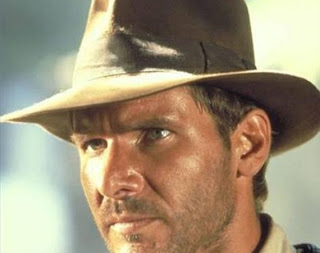Custom-Made Fedora
A fedora hat is a soft felt hat that is creased
lengthwise down the top, or crown. It is pinched in front on both sides. The
brim on a fedora goes all the way around the hat, and many fedoras have a
hatband. (ehow style).
They are identified with gangsters such as Al Capone, but it mainly gives its
identity to Indiana Jones. In section 2 of Invisible
Cities, Calvino, or rather Marco Polo discusses the city of Fedora. “In
every age, someone, looking at Fedora as it was, imagined a way of making it
the ideal city…he constructed his miniature model…what had been until yesterday
a possible future became only a toy in a glass globe.”(Pg 32)
 |
| Every individual's eye is different, just like their desires and identity. |
Each person, designing a model
of Fedora personalized it. Like Indiana Jones’, fedora hat, each model was an
identity of the person. Every individual has different desires and manifests
them through different ways. This is why they “imagined a way of making it the
ideal city” and that could be referred as their personal utopia. “…Every
inhabitant… chooses the city that corresponds to his desires…” (Pg 32) This is
just evidence of the utter uniqueness in each being’s aspirations. Personally,
I think that this is why utopias can never exist. The differences in each human being will never cooperate to
make an ideal version of the world to satisfy everyone.
Calvino places each version in a glass ball mocking utopias. Although they are real on each person’s mind and can be imagined or in this case seen, they remain inside a crystal ball where it’s only displayed. It will never emerge into reality. I believe that when people refer to living inside a bubble they don’t realize how it seriously applies to life. Every person lives inside his or her own bubble perpetually. Each bubble represents a reality and there are no same realities just like there are no same persons. Thus, everyone wears his or her custom-made fedora hat. “…All [Fedora versions] are only assumptions.” (Pg 32). People only assume what’s the best Fedora version for their reality in an unconscious and selfish manner. There will never be indeed a right or wrong, good or bad, better or worst Fedora version. It all depends on the individual’s perception and therefore assumption. Nevertheless it is all of these vast differences that keep the world going by creating a “check and balance”.





























